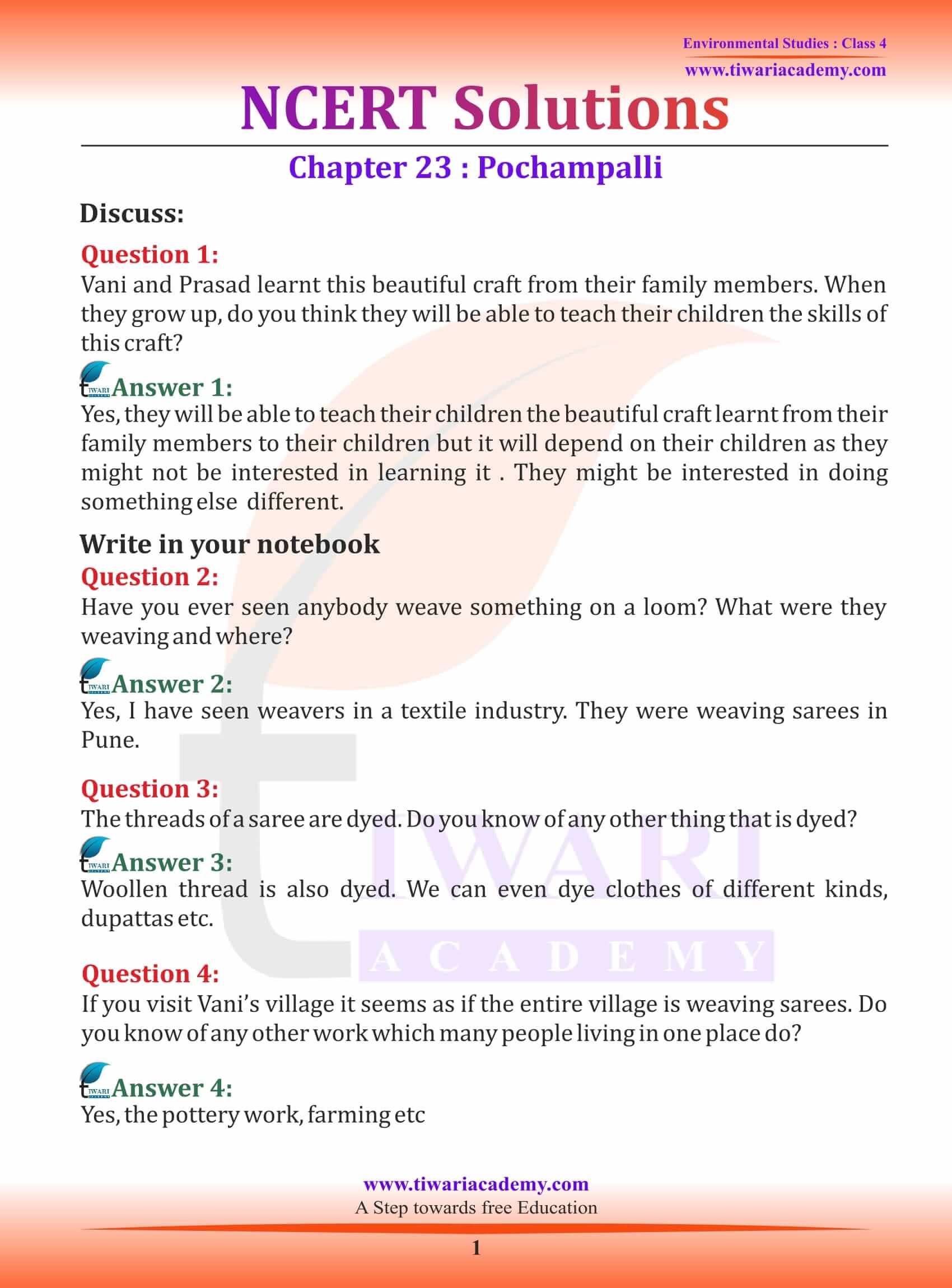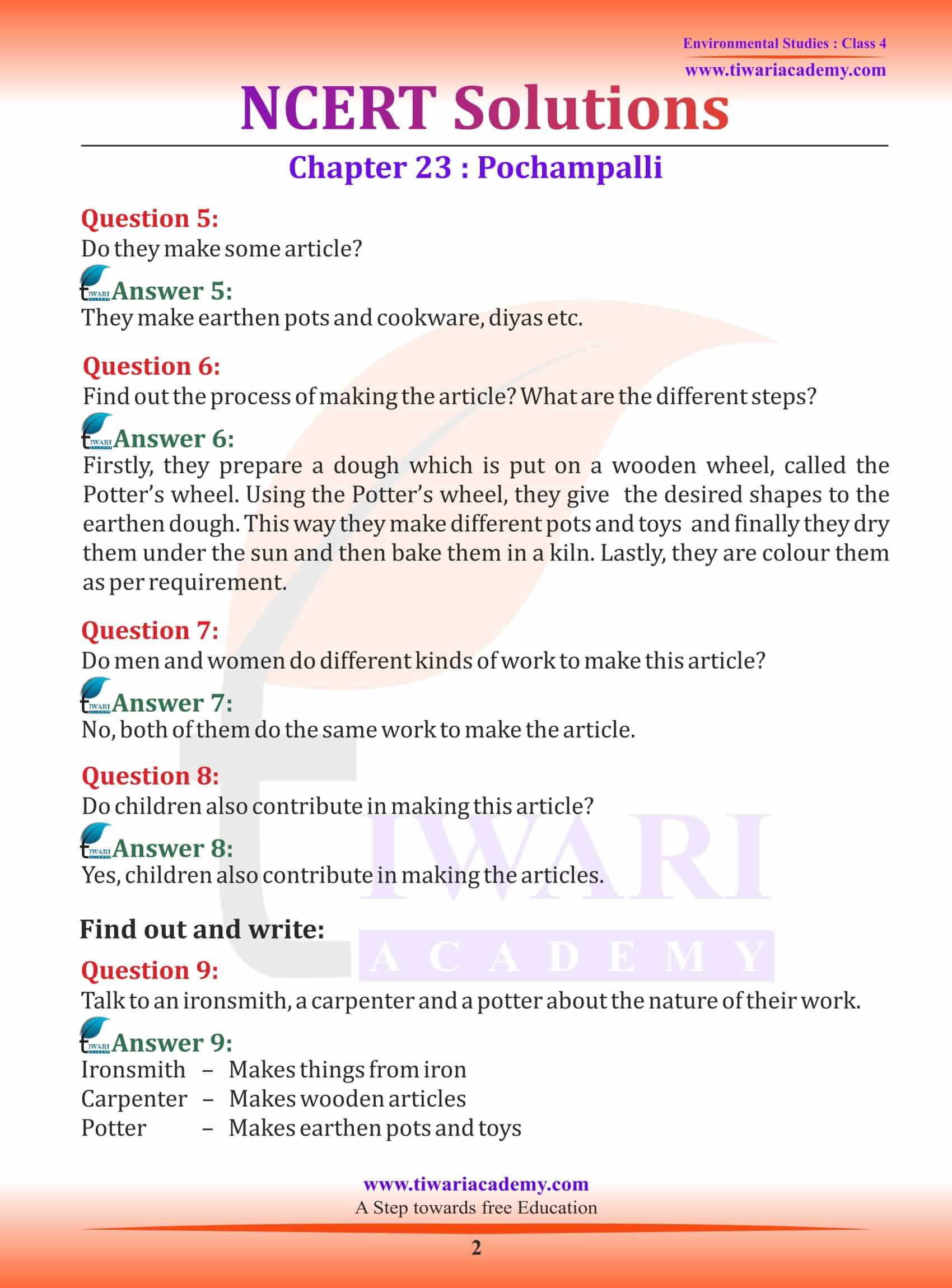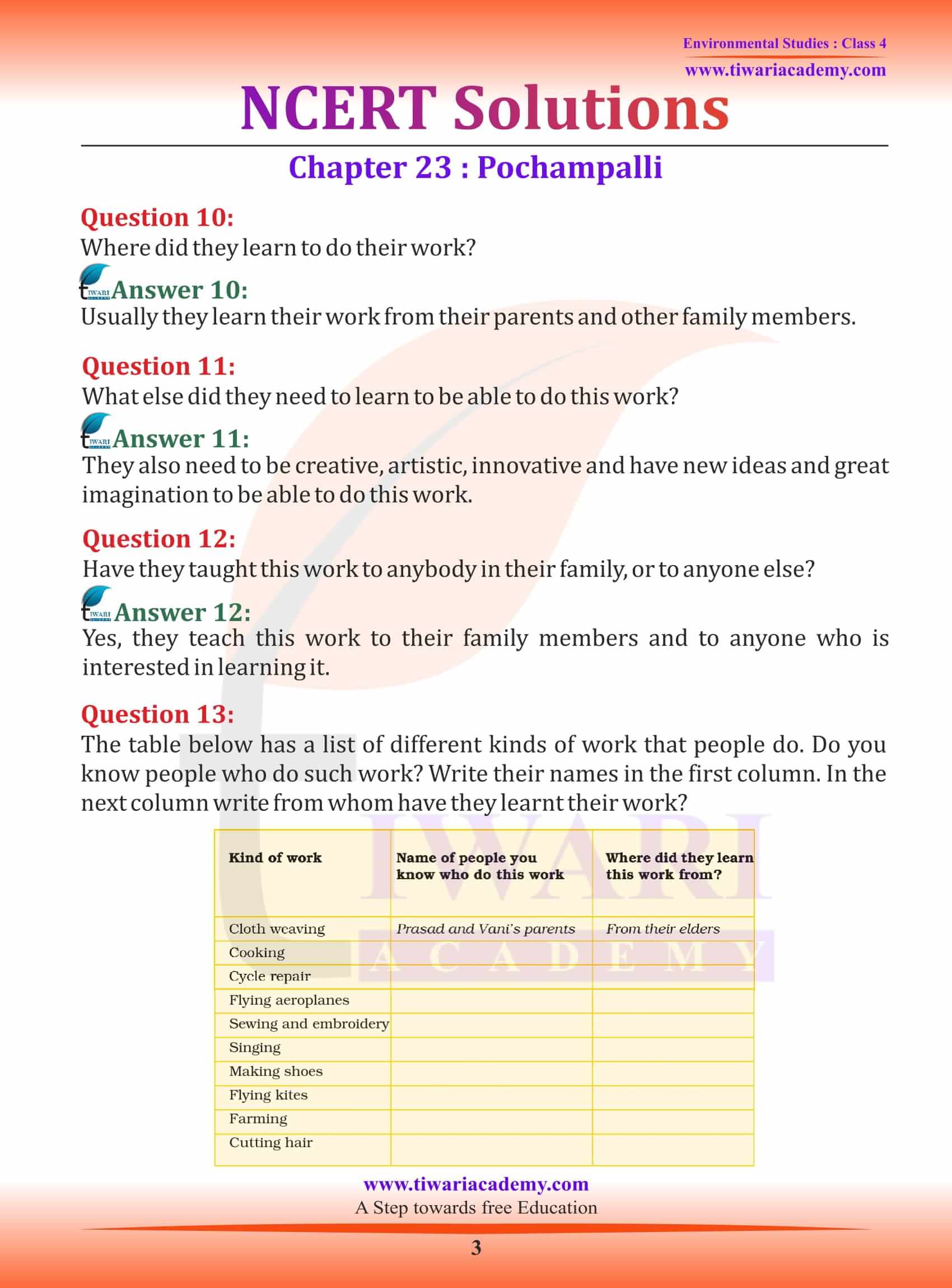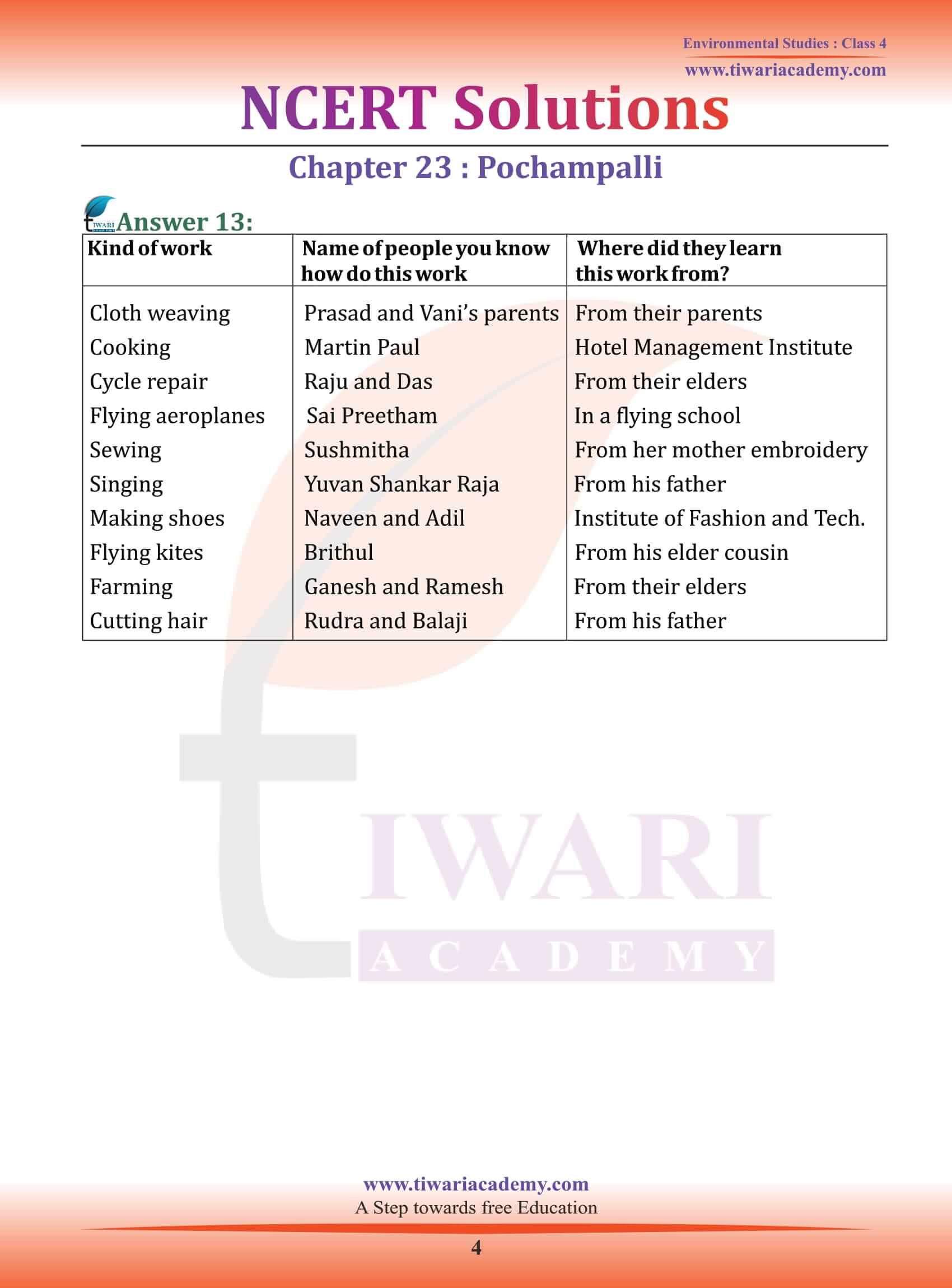NCERT Solutions for Class 4 EVS Chapter 23 Pochampalli in Hindi and English Medium updated for new academic session 2024-25 free to use without any login or password. Download class 4 Environmental Studies in PDF file format or study online with Extra Important Questions answers. All study material for grade 4 are free to use online or offline.
NCERT Solutions for Class 4 EVS Chapter 23
Class 4 EVS Chapter 23 Question Answers with Important Extra Questions
Class 4 EVS Chapter 23 Question Answers Set 1
The threads of a saree are dyed. Do you know of any other thing that is dyed?
Threads use making cloths are dyed in different colors, mostly woollen cloths dyed in different colors.
If you visit Vani’s village it seems as if the entire village is weaving sarees. Do you know of any other work which many people living in one place do?
Yes, I have seen a village where all the people are making earthen pots.
Do they make some article?
Yes, they are making and drying earthen pots.
Find out the process of making the article? What are the different steps?
To make earthen pots there are different steps:
1. collect the clay
2. prepare it
3. make pots
4. dried them
5. Bake them
Do men and women do different kinds of work to make this article?
Yes, they have divided their work but help each other.
Class 4 EVS Chapter 23 Question Answers Set 2
Talk to an ironsmith, a carpenter and a potter about the nature of their work.
All these people have different nature of work, as mention below:
Ironsmith makes iron objects
Carpenter makes wooden objects
Potter makes clay objects
Where did they learn to do their work?
These are their family business. People are learning from their parents and they teach same to their next generations.
What else did they need to learn to be able to do this work?
They need the skill to learn making these objects.
Have they taught this work to anybody in their family, or to anyone else?
Yes, they taught this work to their children in the family.
Question:
Do children also contribute in making this article?
Answer:
children also contribute in making this article because they want learn.
Occupation is the work done by someone for:
Weavers are the people who:
The special cloth that the weavers weave in the Mukhtapur village is called:
Which out if the following are examples of traditional occupations?
We can dye clothes or threads into:
Dye is a substance which gives _________ to a fibre?
Bundles are put onto __________ and the cloth is woven.
The threads after dyeing are rolled into
The loom has many _________ for weaving fabrics.
Making of Pochampalli sarees need a lot of:
The weavers are giving up the family craft as:
The children of the weavers do not want to continue the skills of traditional crafts as:
Question:
Have you ever seen anybody weave something on a loom? What were they weaving and where?
Answer:
I have seen this weaving machine on TV. Where people were weaving shawl on loom.
A stone cutter is a person who works with tools like:
Gold smith uses _________ and ________ to make ornaments etc.
Lockers, keys, containers and tool are made by:
Potters are the people who make things made of:
What part of the story in chapter 23 from 4 standard EVS did you find important?
After studying the chapter I found the chapter is trying to share some of the most important things about the preservation of some of the old skills from the textile industry. Which is on the verge of extinction because of the influence of western culture.
What ideas that you get about the story in unit 23 from class 4 EVS did you find?
The idea that I obtained after studying the chapter is that sharing the information among the children about country style is important so the people actually preserve the old style and skills from the various part of the country.
Are there any other skills apart from skills given in chapter 23 of EVS class 4 that are in danger?
I think the modernization is causing the major problem and Pottery is skills that are in danger as during the festivals also people are preferring to buy more of electric lights and candles which is affecting the small business and people who are skill full to make the mud pots that looks beautiful too.
Do you find this chapter 23 from NCERT EVS of class 4 difficult?
Chapter 23 from class 4 EVS NCERT is not difficult but I found it easy as the chapter contains a message that is easy to read and understand. This might not be as entertaining as comparing other chapters. However, this chapter shares knowledge about some of the important factors.








